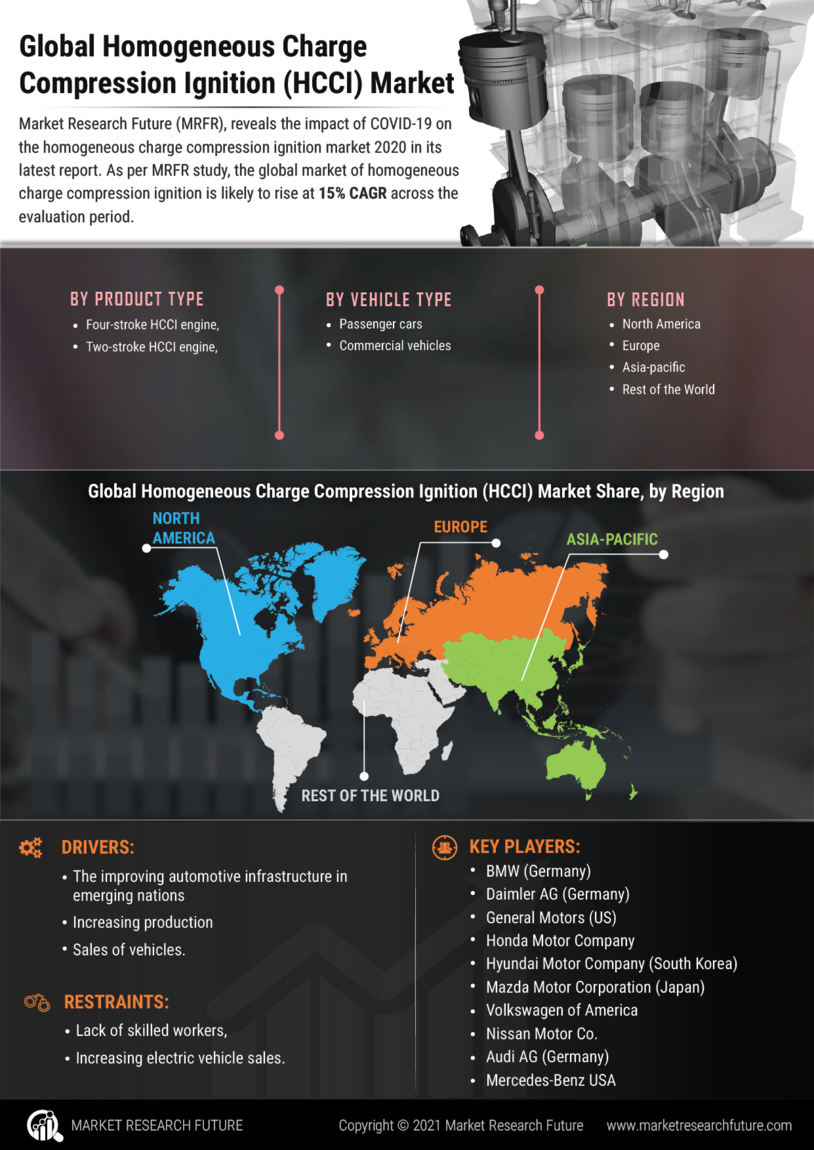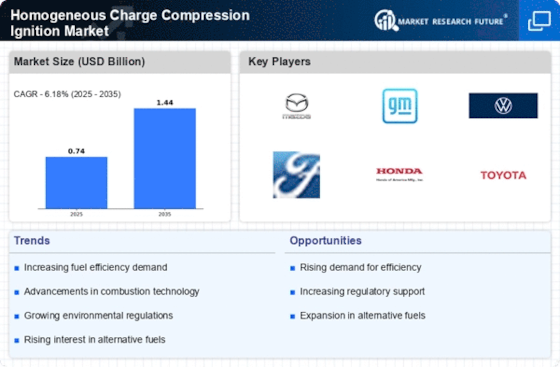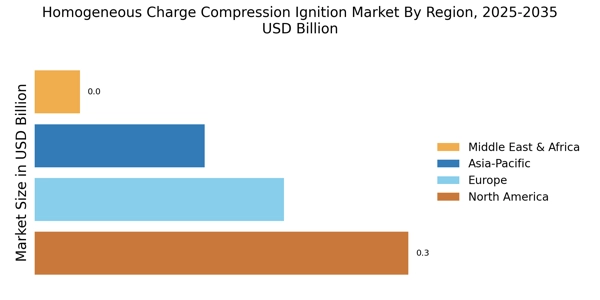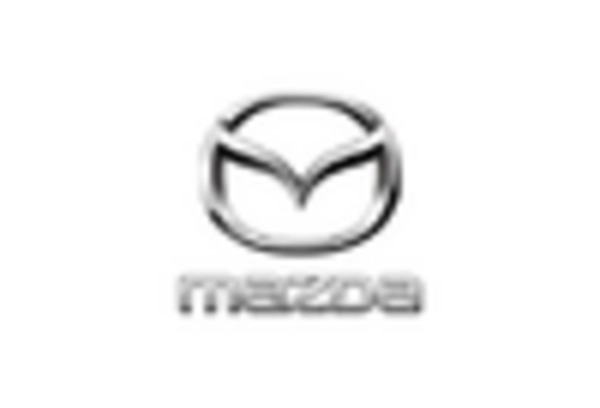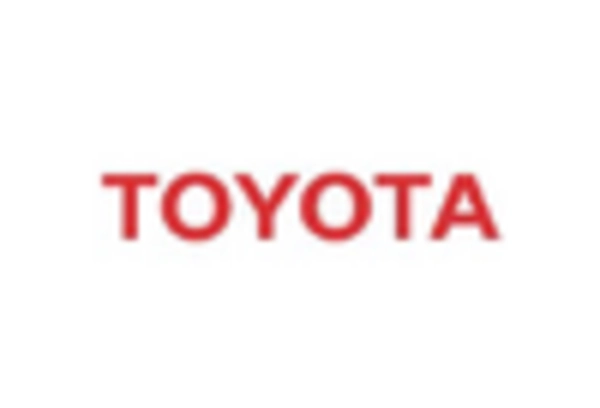Stringent Emission Regulations
Stringent emission regulations imposed by governments worldwide are a crucial driver for the Homogeneous Charge Compression Ignition Market. As nations strive to meet international climate agreements and reduce greenhouse gas emissions, the automotive industry faces increasing pressure to adopt cleaner technologies. HCCI engines, known for their lower NOx and particulate emissions, present a compelling solution to these regulatory challenges. For example, the European Union has set ambitious targets for CO2 emissions from vehicles, which has prompted manufacturers to explore HCCI technology as a means to comply with these regulations. The ongoing evolution of emission standards is likely to accelerate the adoption of HCCI systems, thereby expanding the market.
Rising Demand for Fuel Efficiency
The increasing demand for fuel efficiency in the automotive sector is a primary driver for the Homogeneous Charge Compression Ignition Market. As consumers become more environmentally conscious, manufacturers are compelled to develop engines that consume less fuel while maintaining performance. HCCI technology, which allows for more complete combustion, can potentially enhance fuel efficiency by up to 30% compared to traditional combustion engines. This shift towards fuel-efficient vehicles is further supported by government incentives and consumer preferences, which are likely to propel the adoption of HCCI technology in the coming years. Consequently, the market for HCCI systems is expected to expand as automakers seek to meet these evolving demands.
Growing Interest in Alternative Fuels
The growing interest in alternative fuels is shaping the Homogeneous Charge Compression Ignition Market. As the automotive sector seeks to diversify fuel sources, HCCI technology is well-suited for various alternative fuels, including biofuels and hydrogen. This adaptability not only enhances the appeal of HCCI engines but also aligns with the global shift towards sustainable energy solutions. The potential for HCCI engines to operate efficiently on these fuels could lead to a broader acceptance and implementation of the technology. Furthermore, as research into alternative fuels progresses, the synergy between HCCI technology and these fuels may drive innovation and investment, fostering growth in the HCCI market.
Technological Innovations in Engine Design
Technological innovations in engine design are significantly influencing the Homogeneous Charge Compression Ignition Market. Advances in materials, sensor technology, and computational fluid dynamics have enabled the development of more efficient HCCI engines. These innovations facilitate better control over the combustion process, leading to reduced emissions and improved performance. For instance, the integration of advanced fuel injection systems and variable valve timing can optimize the combustion process, enhancing the overall efficiency of HCCI engines. As these technologies continue to evolve, they are likely to attract investment and research, further driving the growth of the HCCI market. The potential for enhanced engine performance and lower emissions positions HCCI as a viable alternative in the automotive landscape.
Increased Investment in Research and Development
Increased investment in research and development is a significant driver for the Homogeneous Charge Compression Ignition Market. As automakers and research institutions recognize the potential of HCCI technology, funding for innovative projects has surged. This investment is directed towards enhancing the efficiency, reliability, and performance of HCCI engines. Collaborative efforts between industry players and academic institutions are likely to yield breakthroughs in HCCI technology, making it more commercially viable. The focus on R&D not only accelerates the development of advanced HCCI systems but also positions the technology as a competitive option in the automotive market. As a result, the influx of investment is expected to stimulate growth in the HCCI market.
